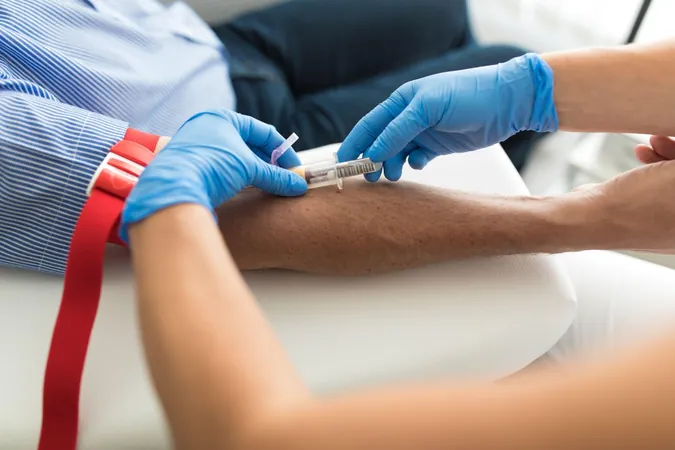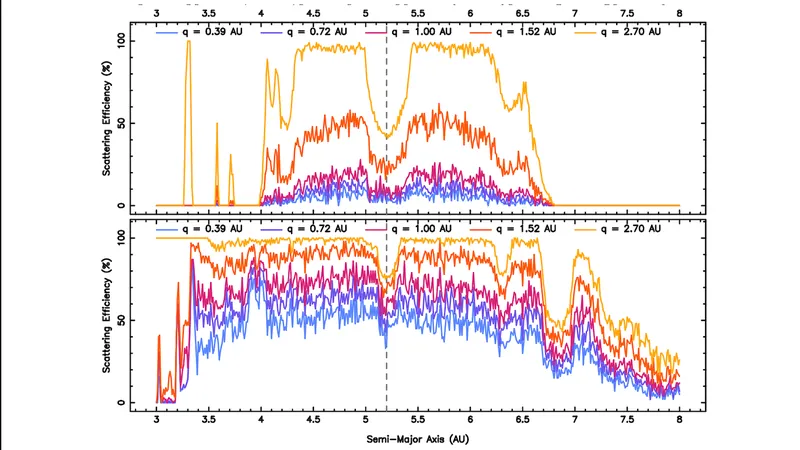
Revolutionary Blood Test Promises to Catch Cancer Early – Could Half of Cases Be Prevented?
2025-05-08
Author: John Tan
Imagine a world where a simple annual blood test could catch cancer before it develops into a life-threatening condition. New research suggests this could soon be a reality, with the potential to prevent nearly half of cancer cases from advancing to critical stages.
Scientists are currently investigating the efficacy of straightforward blood tests designed to detect cancer in its earliest phases—before symptoms emerge. The aim is to improve survival rates significantly.
The NHS is already piloting pioneering tests, including the Galleri and miONCO-Dx tests, setting the stage for a possible nationwide screening program in the next ten years. Experts are optimistic that annual or biannual screening could substantially increase early detection and improve treatment outcomes.
How It Works: The Science Behind the Screening
In their groundbreaking study, researchers utilized mathematical modeling to predict how a multi-cancer blood test would impact individuals aged 50 to 79. They focused on both fast-growing tumors, which display an extended early-stage life span, and aggressive cancers that advance more quickly.
The analysis encompassed various cancer types, including bladder, breast, cervical, bowel, liver, lung, ovarian, pancreatic, and more. Results showed that universal blood screening significantly outperformed standard care methods.
For instance, under scenarios of rapid tumor growth, annual screening detected 370 more signs of cancer per year for every 100,000 individuals screened, resulting in 49% fewer late-stage diagnoses and 21% fewer deaths within five years.
Even biannual screenings proved beneficial, with 292 additional cancer signs detected, leading to a 39% drop in late-stage diagnoses.
A Game-Changer for Cancer Detection?
Lead author Peter Sasieni, a professor of cancer epidemiology at Queen Mary University of London, expressed his enthusiasm for these tests. He emphasized the importance of ensuring that these technological advancements translate into tangible clinical benefits.
"With the advances in molecular biology and AI, we can now detect tiny cancer fragments in just a small blood sample. It's groundbreaking," Sasieni noted.
He remains hopeful that by 2032, substantial evidence will clarify how many lives can be saved through annual screenings. He also mentioned the possibility of negotiating better test prices with manufacturers, paving the way for broader access.
The Future of Cancer Screening: A Collaborative Effort
Dr. David Crosby from Cancer Research UK underscored the potential of multi-cancer early detection tests. He highlighted the need for extensive clinical trials to evaluate the risks and benefits thoroughly.
"It's essential that the government and NHS promote a diverse range of research initiatives so we can maximize the chances of improving cancer outcomes for patients," he said.
As the NHS moves forward with the miONCO-Dx blood test trial involving 8,000 patients, early indications suggest it could detect up to 12 common cancers, marking a promising leap in the fight against cancer.






 Brasil (PT)
Brasil (PT)
 Canada (EN)
Canada (EN)
 Chile (ES)
Chile (ES)
 Česko (CS)
Česko (CS)
 대한민국 (KO)
대한민국 (KO)
 España (ES)
España (ES)
 France (FR)
France (FR)
 Hong Kong (EN)
Hong Kong (EN)
 Italia (IT)
Italia (IT)
 日本 (JA)
日本 (JA)
 Magyarország (HU)
Magyarország (HU)
 Norge (NO)
Norge (NO)
 Polska (PL)
Polska (PL)
 Schweiz (DE)
Schweiz (DE)
 Singapore (EN)
Singapore (EN)
 Sverige (SV)
Sverige (SV)
 Suomi (FI)
Suomi (FI)
 Türkiye (TR)
Türkiye (TR)
 الإمارات العربية المتحدة (AR)
الإمارات العربية المتحدة (AR)